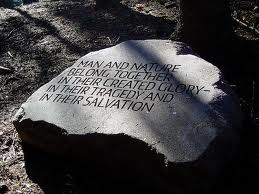 This morning John Lince-Hopkins of Lynx North Studio brought to our attention Technological Fixes for Climate Change.
This morning John Lince-Hopkins of Lynx North Studio brought to our attention Technological Fixes for Climate Change.
We share below one theologian’s response to Technological Fixes for Climate Change.
Regarding “geoengineering”, maybe it’s just my depression, but I think not. The Tower of Babel has always been one of my go-to texts because it holds the paradox of the human condition. All attempts at “engineering” our way to security will fail.
There is an architecture that eludes our engineering when it comes to the planet. It’s called Nature. We are living in the time of what Bill McKibben calls “the end of Nature”. To what extend the end of Nature is the result of human disruption conceived in Western terms as “man over nature,” and to what extend climate change is attributable to non-human factors makes little difference IMHO to the call of the human species within Nature.
The Human Vocation
There are two very different creation stories in the Book of Genesis. Chapter one comes from the priestly (P) tradition.
It was the genius of the Priestly tradition’s creation story (Genesis 1) that they saw the balance of Nature as “Good” (“and God saw…and it was good!”). The artchitecture of creation is a beautiful piece of art that inspires praise and awe. To imagine something else would be to fall from praise. You might say the P writers were more like scientists who beheld and marveled at the intricate web of natural life.
No sooner do we read Chapter One that we come to the second very different creation story from the perspective of what biblical scholars call “J”, so called because of the use of the writer’s Name for God.
Genesis two and three read more like novels, expressing in very earthy terms the earth-bound character of human nature and human creature’s resistance to creaturely life — the inexplicable choice of the archetypal “earthlings” to eat the fruit of the ONLY tree among all the trees of the garden based in humankind’s tragic urge of to become “like God, knowing good and evil.”
Only when they fail to stand in awe and thanksgiving in the midst of the Good (a good which includes nature’s “limits” on their behavior) do they invoke the curse that renders them shamefully conscious of their nakedness (their naturalness) and sends them into a hiding from their Creator. Fratricide (Cain’s slaying of Abel) quickly follows their expulsion from Eden.
The continuing human calling is to see Earth itself as the theater of a glory not of our own making and to resist the illusion of the serpent: “if you eat of the one tree which is forbidden, you will become like God.” It’s the second part of that statement that is the temptation – refusing to live with the limits of Nature itself. One might even say “the Fall” is an attempt at geoengineering.
Genesis 1-11 is called the Primeval History — a history that never was but always is. The Primeval History concludes with the story of Tower of Babel — human engineering for the purpose of “making a name for ourselves”, i.e., establishing and securing our existence in time in the face of chaos.
Now it’s “GEO-engineering” – the illusion that we can fix this, that we can “engineer” our way out of the mess our geoengineering on behalf of a more perfect world has created. There’s a HUGE difference between geoengineering and being responsible. The former disturbs Nature. The latter works collaboratively with Nature…or whatever is left of her. Anything else is Babel. It is doomed to fail.
John captures in paint what his word say of his intention.
 “Environmentally focused paintings and other art forms from the early 21st century build a foundational historic context for future generations. They are documents of the time of ‘the first awareness’ by the human species about the course and implications of climate disruption. As this awareness settles in, climate disruption in the form of weather (as it affects biodiversity, human society and the physical planet) has become, for me, a main topic of my work.”
“Environmentally focused paintings and other art forms from the early 21st century build a foundational historic context for future generations. They are documents of the time of ‘the first awareness’ by the human species about the course and implications of climate disruption. As this awareness settles in, climate disruption in the form of weather (as it affects biodiversity, human society and the physical planet) has become, for me, a main topic of my work.”
Perhaps it’s not too much of a stretch to say that John Lince-Hopkins, the scientist and the painter, combines in the 21st Century the ancient wisdoms of the P writer and the J writer — the awe of Genesis 1 and the earthy calling and tragedy of Genesis 2, 3, and 11. Would that we might all do the same.
Click Art Wander for more on how John views his work as a climate change scientist and artist.
Thankful for the friendship,
- Gordon C. Stewart, Chaska, MN, June 29, 2017.




